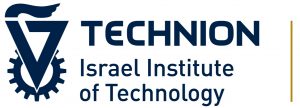Abstract: Reducing food waste is widely recognized as critical for improving resource efficiency and meeting the nutritional demand of a growing human population. Here we explore whether the sharing economy can provide meaningful assistance to reducing food waste in a relatively low-impact and environmentally-sound way. Analyzing 170,000 postings on a popular peer-to-peer food-sharing app, we find that over 19 months, 90t of food waste with an equivalent retail value of £0.7 million were collected by secondary consumers and diverted from disposal. An environmental analysis focused on Greater London reveals that these exchanges were responsible for avoiding emission of 87-156t of CO2-eq. Further, we find that most exchanges were among users associated with lower income yet higher levels of education. These findings, together with the high collection rates (60% on average) suggest that the sharing economy may offer powerful means for improving resource efficiency and reducing food waste.
My research is on the environmental effects of consumerism, and how and when these can be moderated through behavioral and technological change, green products, and innovative business models such as circular economy and sharing economy.

